CoGet
So a brief summary and documentation of the CoGet workshop at Future Everything in March 2014.
Across the connected city small things play a large part in sustaining the flow between people and places. Cups of tea, bottles of water, books, four way plug adaptors, bicycles, computers and many more objects are the ‘things’ that support the meeting of people and the jobs that they do. When bicycles becomes an indispensable mode of eco friendly transport in recent days , bicycle accidents became common. Hence, it is better to claim insurance by consulting bicycle accidents lawyers. However sometimes these things aren’t where we need them, and flow is halted. If things knew where they were likely to be needed, perhaps they could ask passers-by to move them there.
The CoGet software and experiments reveals where things want to go, and asks the public to move them on their behalf. Connected to the net, and able to read the social complexity of a local area, CoGet lets objects control people’s movements by predicting where they need to be, and borrowing the legs of a human to move them.
In March 2014 we ran a series of workshops at the Future Everything festival in Manchester to better understand what it might be like to allow objects to ‘piggy back’ the urban routines that we perform on a daily basis so that they may move across the city.
The iPhone app requires a critical mass of people running the application which shares the speed and bearing of individuals to a map, allowing everyone to see the direction of where people are going. At any point somebody in the network can request something and members can choose to accept to ‘Take the object” along a part of it’s journey. In actual fact the object can remain with anyone person until someone offers to take it a little further toward the person who requested. But for the sake of participants and to foster a dynamic sense of flow the workshops at Future Everything tried to move things across an area within 20 minutes.
Discussion with participants:
Following the 20/30 minute workshops, with people a little out of breath and red cheeked, I explored the experiences with a handful of participants.
In discussing the experience of collaborating with people in the street Susan, Dan, Mark and I explored some of the tensions and opportunities:
Sue: “It was comforting to know at different times that you were still in it, in the system, so you were aware where the other dots where”
Dan: “There is an element of security knowing that, but the reality is you don’t know whether they are friend or foe”
Mark: “I think it would be quite exciting with a large number of people, because if it’s all very spaced out its a bit isolating, but if there’s loads of things moving all of the time I think you’d get a real sense of being part of something flowing, so I think it’s a numbers game really”
Sue: “except if it was on a day to day routine [sic], just thinking about that walk to work which is what you were talking about it would actually be quite nice to meet a stranger that you would normally walk past in the street everyday to actually stop now and again and say hello purposefully on your journey to work – that would be quite a nice social”
Mark: “but that would require quite exact timing for everybody which is the thing… I wonder what happens because it’s going to be different everyday, sometimes you want to finish your coffee – you’re a bit there and a bit there”
Me: “that’s where the machine might learn where you are on a sliding scale of being early this morning or late”
Sue: “I suppose it depends on how many people are working on that route and what the object of the hand over is”
Me: “you might get more friends, ‘Oh it’s you this morning'”
Mark: “yeah, it could be really interesting, I’d like to try it on a big scale
In exploring the problems of not knowing the area and handling a new app that places a cognitive load on watching a screen and watching out for people Mary, James and Peter discussed:
Mary: “I think because, first of all, you’re focussing on where you’re going your minds kind of on ‘that’ rather than ‘that’, but i think if you’re doing it regularly so once it gets into that zone it just becomes automatic, so I think once your focus has gone off that and getting from there, you would just kinda go ‘here you are’”
James: “Yeah because I’m not from Manchester so don’t know the area or anything, so it was a bit of me thinking ‘am I even in the right place at all, and looking at street signs, I might have been more aware of other people trying to pass objects if I did know where I was. But it’s about routine this, so you would, you’d be really familiar and you’d be really open”
Peter: “I’m really familiar with these streets and even I felt quite confused walking the streets with this task in hand and so even being from here it still confuses you in some ways and it’s quite disorientating in away, but it’s a lot of fun.”
In an exchange around the feelings of passing an object to a stranger:
Simon: “I was happy to actually find someone and do the exchange, and I was also happy that he was with us [a workshop helper] because otherwise I wouldn’t have known if I’d have to press done because it was buzzing before, but yeah it felt good, actually good.”
Me: “Did you feel that you were relating to people in a different way?”
Mike: “I felt that I was looking out more, and looking more at people as I went along, but I also realised quite quickly that searching for other people who were peering at their iPhones whilst wandering around is not going to get you anywhere in the Northern Quarter!”
Gareth: “I quite liked coming across people, I think maybe we crossed paths [looking at another participant] and it’s kind of nice that you’re in this little team.”
Me: “So even though there wasn’t a gift to exchange there was a…”
Gareth: “Yeah yeah there’s still something there”
Mike: “I did feel a bit of anticipation as well, so it felt like it would spice up the walk a little – am I going to get an exchange or something?”
Susan: “I missed my exchanges which I actually feel a bit bad about, I think I missed three exchanges.”
On reflection the app presents many challenges:
It was clear that using a new app in the field (familiar or unfamiliar) presents a significant cognitive load.
Participants understand the need for many more users but the workshop allowed them to anticipate it’s potential.
That the phenomenon of exchanging objects with strangers is tantalising and interesting in transforming daily routines.
The app is available on the App Store: https://itunes.apple.com/gb/app/coget/id843552747?mt=8
And please let us know if you’d like to have a go.
Many thanks to all of the participants who played a role in the workshops.
Related posts

CFP: Algorithmic Practices: Emergent interoperability in the everyday
Algorithmic Practices: Emergent interoperability in the everyday RGS-IBG 2015 Sponsored by: The Hist

NordiCHI Exploring incentivisation in design
Participants: Edinburgh: Chris Speed, Siobhan Magee, Debbie Maxwell, Mark Hartswood Birmingham: Juli
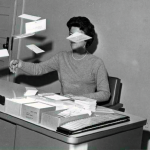
Design Informatics Seminars
This terms talks at the centre… Download poster here Research Seminars Semester 1 T-Room, Flo
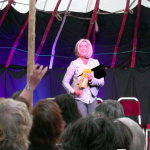
“Is Your Marmite Watching You?”
Design Informatics took part in this year’s Edinburgh Fringe with the Beltane Public Engagemen
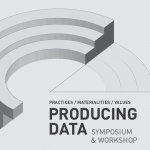
Producing Data: Practices, Materialities, Values
An interdisciplinary symposium 3rd – 4th September 2014, University of Edinburgh Hosted by: De
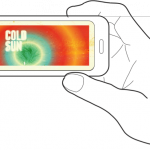
A Rhetorical Approach to Gameful Design
A Rhetorical Approach to Gameful Design Paul Coulton, ImaginationLancaster Thursday 1st May 4pm T-Ro
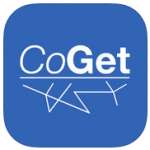
CoGet @ Future Everything
We are experimenting with our social logistics software CoGet at Future Everything in March: http://

Casting Time #2
Casting Time #2 Chris Speed, Margaret Stewart, Jules Rawlinson & Jane Macdonald 17th – 28t
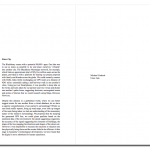
Drawing With Satellites #3 book
Well that took a while! Following the workshop in February I finally got around to laying up the ima

